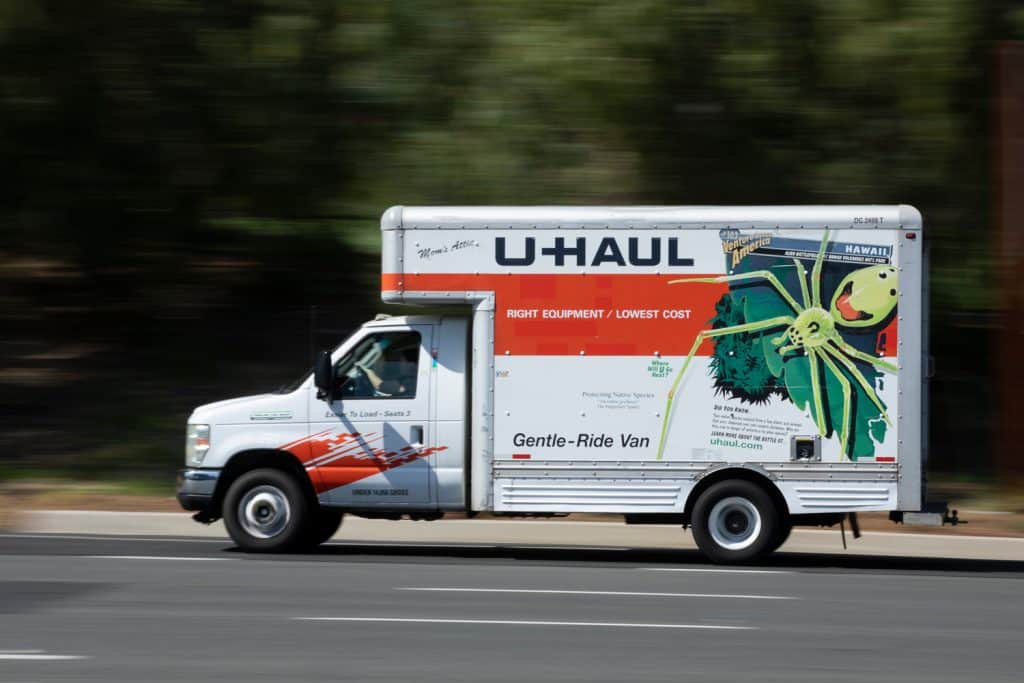Moving, camping, or planning a big trip? Many travelers wonder if they can save money and hassle by renting a U-Haul truck to tow their travel trailer. It sounds convenient; just rent a truck and hitch up your camper. But the answer is not as simple as a blanket “yes” or “no.”
Whether it’s possible depends on the type of U-Haul truck you rent, your trailer’s weight, towing equipment, and local laws. Here’s an updated, detailed guide to help you understand when you can tow a travel trailer with a U-Haul and when you can’t.
Why People Consider Using U-Haul for Towing
U-Haul is popular for moves because of its large fleet of affordable, accessible rental trucks. They advertise low daily rates, nationwide locations, and flexible rentals.
If you don’t own a pickup, renting one from U-Haul seems like an easy way to tow your travel trailer for a vacation or move. Renting a truck for towing can also be cheaper than buying one, especially if you only need it once in a while.
But before you reserve that truck, you need to know that
U-Haul’s policies and capabilities vary greatly by vehicle type
. Not all U-Haul trucks are created equal when it comes to towing.
U-Haul’s Pickup Trucks Can Tow Travel Trailers
If you want to tow your travel trailer with a U-Haul, their
pickup trucks
are your best (and really only) option.
U-Haul rents out well-equipped half-ton pickups (like the GMC Sierra or Ram 1500) with hitches installed. These trucks generally have:
- A rated towing capacity of up to around 6,000 pounds
- Standard 2-inch hitch receivers
- Factory towing packages
For many small to mid-sized travel trailers, this capacity is enough. For example, many 20- to 25-foot travel trailers have dry weights under 5,000 pounds. Even loaded, they might stay below 6,000 pounds.
But there’s a catch:
you need to confirm the actual loaded weight of your trailer
. Always check your trailer’s gross vehicle weight rating (GVWR) to see if it’s safe and legal to tow behind a rental pickup.
Box Trucks Can’t Tow Personal Travel Trailers
This is where many people get tripped up:
U-Haul’s moving box trucks (10-foot, 15-foot, 20-foot, 26-foot) are not allowed to tow personal travel trailers.
Why not?
-
U-Haul specifically designs their hitches for
their own
trailers (like cargo trailers or car haulers). - Their trucks often lack wiring setups for brake controllers required by law for heavy trailers.
- They have no published towing capacity for personal RVs or campers.
-
Company policy
prohibits
customers from using them to tow non-U-Haul trailers.
Even if you see a hitch on a 26-foot moving truck, it’s not there for your camper. It’s for their own transport trailers only.
Don’t Assume Every Truck Tows 6,000 Pounds
One myth that pops up online is that “every U-Haul truck can tow 6,000 pounds.”
That’s simply not true. Only U-Haul’s
pickup trucks
list a towing capacity around 6,000 pounds. Their box trucks don’t publish capacities for personal trailers because they aren’t supposed to tow them.
If you call U-Haul and ask, they’ll confirm:
box trucks can’t be rented to tow travel trailers
.
Requirements for Towing with a U-Haul Pickup
If you plan to tow your travel trailer with a U-Haul pickup, you still need to plan carefully. It’s not just about hitching up and hitting the road.
Here are key requirements:
-
Check weight limits.
Your fully loaded trailer must stay below the truck’s towing rating (typically 6,000 pounds). Don’t just look at “dry weight.” Add water, propane, gear, and cargo. -
Brake controller.
Most states require electric trailer brakes for loads over 3,000–3,500 pounds. U-Haul pickups may not have integrated brake controllers. You may need to install or supply one to tow legally and safely. -
Wiring and hitch checks.
Ensure the truck has the correct 7-pin wiring for your trailer’s lights and brakes. -
Proper hitch equipment.
Match the ball size, weight rating, and hitch height to your trailer.
You should always talk to U-Haul staff before you book. Tell them you plan to tow a travel trailer and ask what they can provide.
The Importance of State and Local Laws
Towing laws vary by state. In many areas, if your trailer weighs more than 3,000 pounds loaded, it
must
have working brakes. That usually means you need a functioning electric brake controller in the truck.
U-Haul staff won’t necessarily install or certify that for you. It’s your responsibility to ensure you’re legal.
If you don’t meet those rules and get stopped or cause an accident, you could face fines, legal trouble, or worse.
Understanding Travel Trailer Weights
Not sure what your travel trailer weighs? Here are typical numbers:
- Small teardrop trailers: 1,000–2,000 pounds
- Small single-axle travel trailers: 2,500–3,500 pounds
- Mid-size 20–25 foot travel trailers: 4,000–6,000 pounds
- Large 30–35 foot travel trailers: 6,500–9,000 pounds or more
Remember, “dry weight” is just the empty trailer. Fully loaded weight includes water, propane, camping gear, clothes, food, and tools.
Before renting any tow vehicle, check the
GVWR
of your trailer.
Prepping Your Trailer for the Move
If you’re going to tow your trailer with a U-Haul pickup, don’t just hitch and go. Here’s how to prepare:
-
Empty your water tanks
. Water is heavy (8+ pounds per gallon). Full tanks add hundreds of pounds. -
Remove heavy items.
If you can, load gear into the truck bed instead of the trailer to reduce tongue weight. -
Secure all interior items.
Pack and strap furniture, dishes, electronics. Prevent shifting and damage. -
Check tire pressure and condition.
Old or underinflated tires can blow on the highway. -
Test all lights and brakes.
Safety and legality depend on them working. -
Inspect the hitch and coupler.
Ensure they’re tight, rated, and in good shape.
Costs of Renting a U-Haul Pickup
U-Haul’s pickup trucks are typically advertised starting around $19.95 per day. But expect to pay:
- A per-mile fee (often $0.79–$1.29/mile).
- Fuel costs (you must return it full).
- Insurance or damage waiver fees.
- Extra fees for time over the contract.
Overall, renting a U-Haul pickup is usually far cheaper than buying one for occasional towing, but make sure you get a clear price quote in advance.
Other Hidden Fees to Watch For
U-Haul rentals can come with extra fees you may not expect:
-
Cleaning fees
(often $25+) if the truck isn’t returned tidy. -
Mileage fees
on top of daily rates. -
Damage protection
add-ons. -
Fuel surcharges
if you return it low. -
Environmental fees
in some areas.
Always read the rental contract carefully so you’re not surprised at drop-off.
When U-Haul Is a Good Choice for Towing
In short, U-Haul’s pickup trucks
can
be a great solution if:
- Your trailer’s loaded weight is within their towing rating.
- You have or can install a brake controller if needed.
- You confirm the truck has appropriate wiring.
- You’re making a short move or trip and need an affordable option.
A U-Haul pickup can save you from buying or borrowing a truck for campers, vacationers, and DIY movers with small to mid-size travel trailers.
When You Shouldn’t Use a U-Haul
But U-Haul isn’t always the answer. Don’t use their trucks if:
-
You have a large or heavy trailer that exceeds their
towing capacity
. - You’re planning a long-distance cross-country tow without ensuring the truck’s equipment is rated and reliable.
-
You need to tow with a
box truck
; they can’t tow personal trailers at all. - You can’t meet brake and wiring requirements for legal towing in your state.
Final Advice for a Smooth Move
If you’re considering using a U-Haul pickup to tow your travel trailer:
- Call the rental location in advance and discuss your plan.
- Be honest about your trailer’s size and weight.
- Check your state’s towing laws.
- Inspect the truck’s hitch, wiring, and brakes carefully.
- Plan your route, weight distribution, and stops.
With the right prep, a U-Haul pickup can safely move many
travel trailers
for local or regional trips. But make sure you understand the limits and responsibilities before you hitch up.
By doing your homework and planning ahead, you can make sure your move or camping trip goes off without a hitch, except for the one connecting your trailer safely to the truck.













Leave a Reply